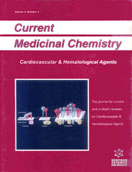Abstract
Obesity is associated with increased incidence of cardiovascular mortality. However, the mechanisms that link increased fat mass with hypercholesterolemia, hypertension, endothelial dysfunction and coronary heart disease have not been fully elucidated. Unravelling the diverse neuroendocrine systems, which regulate energy balance and body fat has been a long-standing challenge in biology, with obesity as an increasingly important public health focus. Until recently, the adipocyte has been considered only a passive tissue for the storage of excess energy in the form of fat. However, there is now compelling evidence that adipocytes act as endocrine, secretory cells. It has been shown that several hormones, growth factors and cytokines are actually expressed in white adipose tissue. In a dynamic view of the adipocyte a wide range of signals emanates from white adipose tissue such as tumour necrosis factor-α (TNF-α), interleukin-6 (IL-6), and their respective soluble receptors. White adipose tissue also secretes important regulators of lipoprotein metabolism like lipoprotein lipase (LPL), apolipoprotein E (apoE) and cholesteryl ester transfer protein (CETP). The increasing number of products secreted by adipocytes also includes leptin, estrogen, angiotensinogen, plasminogen activator inhibitor-1 (PAI-1), tissue factor and transforming growth factor-β (TGF-β). Nitric oxide synthase (NOS) has been also reported to be expressed in white adipose tissue. Acylation stimulating protein (ASP), adipophilin, adipoQ, adipsin, monobutyrin, agouti protein and factors related to pro-inflammatory and immune processes have also been shown to be released by white adipocytes. Since blood vessels express receptors for most of the adipocyte-derived factors, adipose tissue seems to play a key role in cardiovascular physiology through the existence of a network of local and systemic signals. The current knowledge in this field will be reviewed in the broader perspective of cardiovascular physiology and pathophysiology.
Keywords: adipokines, pro-inflammatory cytokines, adipocytes, vascular reactivity, obesity, cardiovascular disease
 4
4













